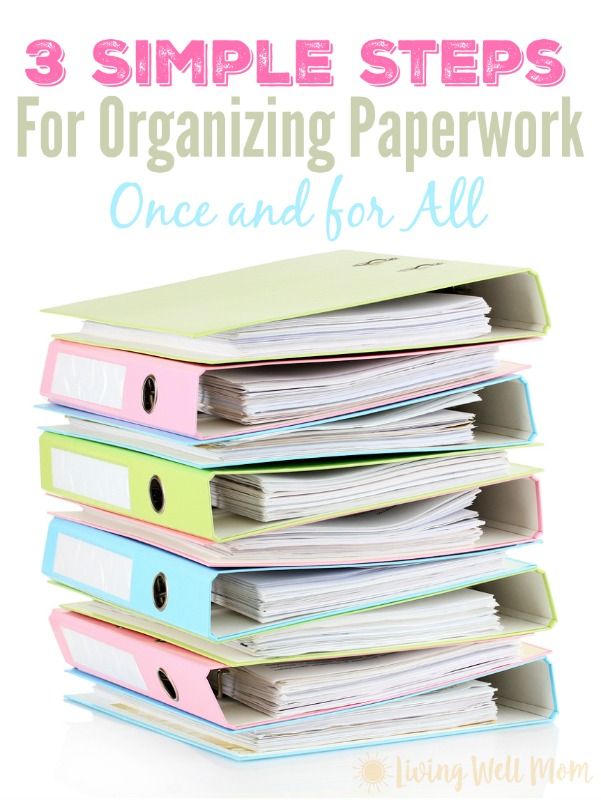Master the Art of Paperwork: Easy Steps for Beginners

Organizing paperwork can be daunting, especially for beginners. Whether it's for personal finance, business management, or simply keeping track of your home office, effective paperwork organization ensures you have quick access to essential documents and reduces the stress of clutter. This post will guide you through easy steps to master the art of paperwork from sorting to storing, making the task less intimidating and more manageable.
Step 1: Sort Your Papers

The first step in organizing your paperwork is to sort everything into categories. Here’s how:
- Identify categories like bills, bank statements, insurance policies, medical records, legal documents, and personal records (like birth certificates, passports, etc.).
- Create a sorting area: Use trays, bins, or folders to physically sort documents into these categories. You can label these as:
- Immediate Action
- To File
- To Shred
- To Recycle
- Go through your piles or stacks and place each document into the appropriate category.
Step 2: Prioritize Immediate Actions

Not all documents are created equal, and some require your immediate attention:
- Pay bills on time to avoid late fees or service disconnections.
- Respond to important notices like insurance renewals or legal documents that require action.
- Set reminders or use a calendar to ensure these documents are not overlooked.
Step 3: Filing System Setup

Once you’ve sorted and prioritized your paperwork, set up a filing system:
- Choose a filing method:
- Hanging File Folders for major categories
- File Cabinets or Binders for in-depth organization
- Name your files in a way that makes retrieval easy. For example:
- Finances 2023
- Health Records
- Home Maintenance
- File documents in a logical order (chronologically or alphabetically) within each category.
Step 4: Digitize When Possible

Digitizing your paperwork can save space and make searching easier:
- Scanning: Use a good quality scanner or a mobile app to scan documents.
- Organization: Save digital copies in well-labeled folders on your computer or cloud storage.
- Security: Ensure your digital documents are password-protected or encrypted.
Step 5: Purge and Shred

Regularly review your documents to:
- Discard outdated documents: Get rid of items no longer needed (e.g., old utility bills after verifying they’re no longer required for tax purposes).
- Shred sensitive information: Use a cross-cut shredder to destroy documents with personal information to prevent identity theft.
Step 6: Maintain Your System

Set aside time weekly or monthly to:
- Go through incoming documents and follow your established sorting routine.
- Check for documents that need immediate action and update any deadlines on your calendar.
- File new documents promptly to keep your system up to date.
📌 Note: Remember to regularly review your files to keep your paperwork up to date and ensure that all relevant information is still current.
By following these easy steps, you can transform the chaos of paperwork into an organized, stress-free system. Starting with sorting, prioritizing, setting up a good filing system, digitizing documents, shredding unnecessary ones, and maintaining the organization over time, you'll find that managing paperwork becomes less of a burden. Keep in mind that maintaining your paperwork is an ongoing process, not a one-time task. Adapt these steps to fit your specific needs and preferences, and you'll master the art of paperwork in no time. This organization not only saves time and reduces stress but also ensures that you're prepared for any document you need, whenever you need it.
How often should I organize my paperwork?

+
Ideally, you should organize your paperwork at least once a week to stay on top of new documents and ensure that your filing system remains current and useful.
Can I keep all my paperwork digitally?

+
Yes, you can transition to a paperless system, but for some documents, especially legal or financial, physical copies might still be necessary. Always check the requirements for legal retention or tax purposes before going entirely digital.
What’s the best way to store important original documents?

+
Store important original documents like passports, deeds, and insurance policies in a fireproof, waterproof safe, or a secure safe deposit box at your bank.



